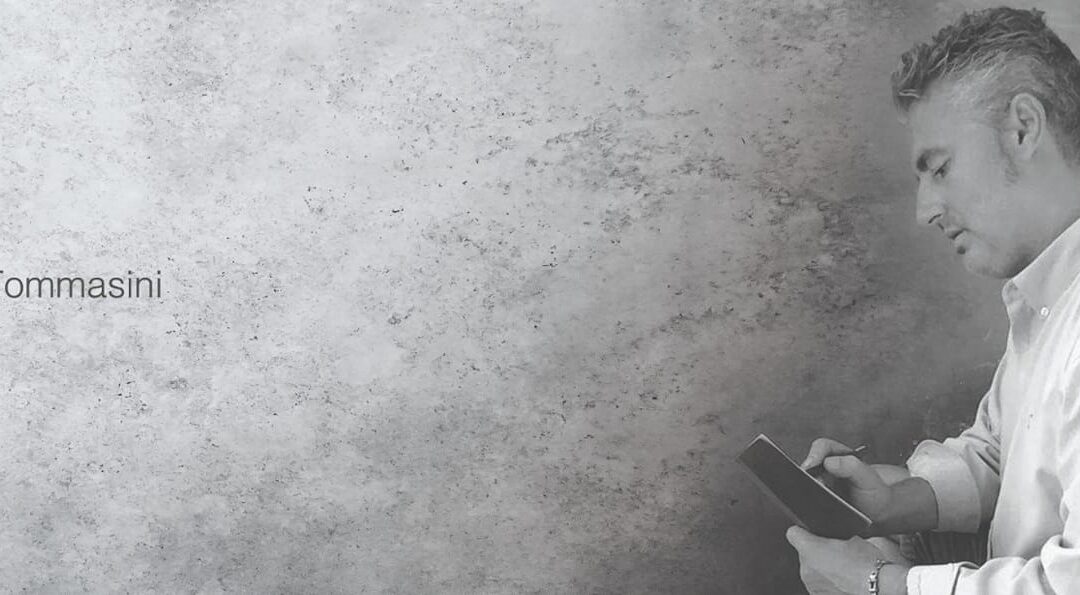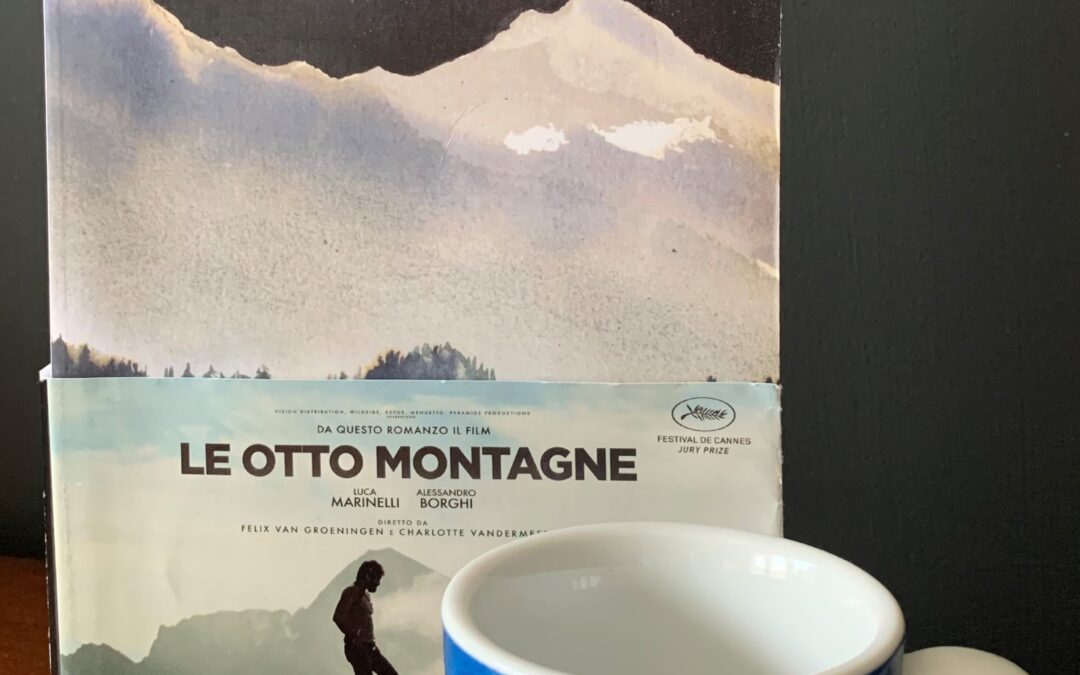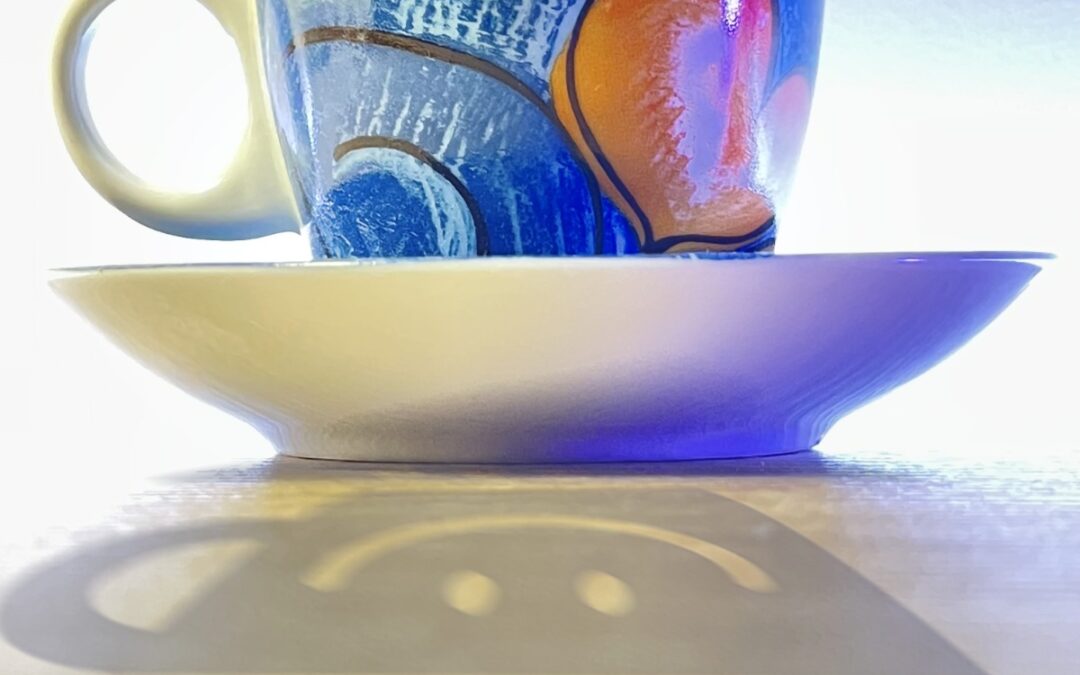
GIOVANNI TOMMASINI
With each new year in one way or another, we find ourselves with the thought of “beginning.”
I would like to quote Mary Shelley’s phrase
The beginning is always today.
At the beginning of the KCDC journey I could not imagine that I would have met you, perhaps we would not have had the chance to connect without the help of the web, or perhaps we would.
The network of virtual connections also led me to a very special ‘home base’: Giovanni’s concept of home base and baseball metaphor, which I suggest you discover directly from his words.
The KEEP CALM & DRINK COFFEE collaboration begins with this first article.
“The perfect setting for a chat: coffee” this is the presentation of this blog in which thoughts, comments, suggestions are collected and reposted, as if each of us had our favourite cup to show along with our passions and life stories.
It seems to me a good opportunity to start with a presentation of the beginning of the path that led me to get in touch with this reality, whose motto is ‘the site that gives you this opportunity’.
It is not every day that one hears these words.
In fact, when I read them, I could hardly believe the beauty of the willingness to create reciprocity and collaboration.
So I sent a message via social pages to return my enthusiasm for the proposal and opportunity for reciprocity.
After a few messages of first acquaintance, here I am to tell you my ‘writer for home’ story.
It started with the purchase of a laptop on special offer back in the winter of 2012.
It all started like this…
…….
“Gian I bought a laptop, I’m bringing it all down”.
That’s how I announced my desire to put my personal stories into story form.
Not only to tell them, but also to make them a road to follow, experiences to propose, to share, to relive together, each in his own world, in his memories, on his own emotional tone.
I set out to write…
Three pages on the ‘little unaware heroes of baseball’, I sent them to various publishing houses that dealt with sports, sports culture, sports education.
Fabio Mancini of G. Danna of Florence, Edusport.it website, called me.
“Tommasini, we really liked your way of romanticising reality, can you send us the whole story, we would like to publish it on our site as article of the month and we would like to make a DVD on the teaching of baseball in the physical education class in high schools.”
What had I written?
I’m going to review the e-mail, “I send you the first three pages of my story Little Unknowing Heroes of Baseball, fifteen teenagers who, in 1976, having just celebrated their age entering double figures, they were introduced to the art of baseball and nothing was ever the same again.
I forgot to write that the pages were the first but also the only ones…
The story was still to be written.
But the whole story was required for the edusport.it site.
I found myself in the same condition in which I had to do my homework for the holidays.
So I set to work.
They published it on the site as the article of the month of July, and on 1 August it was reported by the FIBS – Italian Baseball and Softball Federation on the official federal site.
Various sites, online editorial offices, especially baseballmania, began to contact me, as if electrocuted by the story.
“Something ravishes, the words go deep, those who read them do not forget them, indeed it is as if they rewrote them in relation to their own experience and emotional state”.
My name is Giovanni Colantuono from Nettuno, editor of the online site Baseballmania.
“Tommasini you’re the first one to tell baseball like this, there’s everything in your story, not just the batting, there’s all of us, our passions, the way we live life and sport, I can publish it, tell me about yourself, I want to know more, I’ll do a feature article on you, write others, let’s do a column dedicated to Giovanni Tommasini’s baseball stories, on the Little Unknowing of the Tomato baseball club.”
A few days after my debut as a writer, for the first time I was referred to as such.
What is going on, and how is my way of narrating my personal events re-enacted in a narrative so intimate that it elicits reactions in the reader that are also deeply personal, which are in the reading translated into a universal language, whereby the reader sees himself again, relives parts of himself and his own experience?
The first comments from readers arrived.
They would be of the same tenor as the comments of my first proofreader, once I had collected all the stories that in three months were written by me almost compulsively and which, within a few weeks of publication on the sites that requested them, would go on to form my first book.
I notice a common denominator.
My words excite, my description of the realities returned touch the emotional side, “the text possesses the quality proper to works of art, it excites” is how my text is commented on during editing.
You use a glass mirror to see your face; you use works of art to see your soul.
George Bernard Shaw
I begin to wonder why this ‘effect’ as I think of my writing?
Why did I start writing, where did the urge come from, the need to express an experience of mine, what need moved my will, led me feverishly to the keyboard, as if there was nothing else to do.
If the world were clear, art would not exist.
Albert Camus
In THE ART OF BASEBALL, the proposal, the requirement, the starting point was:
The story of the experience of some fifteen children who, starting from the basement of a car park in the centre of spectacular Sanremo, at the ‘mercy’ of two passionate, visionary personalities, will live an ‘adult’ experience at a still tender age.
The need to emphasise the beauty and depth of an adventure that will change them forever and teach them the pleasure of doing something well, with passion, curiosity, without thinking about results, but only to be able to fully express themselves, get to know each other better, grow together.
The articulation of the broader concept of growing up having the good fortune to be involved in an adventure disproportionate to one’s age, and the great value of passion, curiosity, friendship, healthy craziness that will lead these children to live an experience that will give them an indelible formation and imprint for their entire lives.
The memory of those years, places, feelings experienced, contexts, humanity, lived will be the sub-concepts that allowed the articulation and restitution of the stories told in the tales that make up THE ART OF BASEBALL.
Among the stories, one in particular totally involved me and was written solely by involving my emotional being.
For some time now, the concept of ‘addiction’ had been reverberating in me, the memory of one of our teammates getting ‘pierced’, our living through this drama, not knowing what to do, hiding our suffering and love for our beloved teammate.
Linked to the concept of dependence was that of our helplessness, that of our being too small in the face of such a big issue, our emotions that we could not express, dominate, live.
Which exploded in our worst nightmares, fantasies, suffocated suffering.
It was all a mixture of these ‘themes’ and I could not understand how to describe, return all this humanity, so intensely felt by all in inaccessible depths.
I was in the supermarket queue and like a flash of lightning ripping through the sky and clouds the story came to me. All the concepts that had grown up until then only created unexploded ordnance in me.
It was shocking and in me it began to rain, thunder, hail.
Arriving home in a hurry, I stood at the keyboard weeping and in twenty minutes, as if overwhelmed by a real ‘storm’, I wrote the story….
Now in play.
I asked myself, what to do?
Enjoy this first unexpected, never planned, unthinkable until a few months before, book or try to write something else, and what?
And how?
Everyone asks me one thing. Write Cesare.
Your story with the autistic child you have lived with for fifteen years.
I decide to go ahead. To stay in the game.
The project of giving back my first experience as a home educator is born.
I begin to ask myself questions and catch a glimpse of the path already unconsciously taken in writing the stories of THE ART OF BASEBALL.
The first answer to be given.
In the future second book, I AM CESARE …., what is the ‘experience’ to be returned?
Thinking back to the good fortune of having experienced the relationship with Cesare, a child suffering from a severe form of autism, an urgent and pressing need arose in me to represent concepts deeply rooted in this extreme experience, well ingrained in me, but to be brought to the light of awareness.
The first step other than the first three pages…
Now I am beginning to plan the path, a method is emerging, making clear the starting points, the roots of the story, long before I get in touch with everything else, which is still unclear in me, but on this occasion I am beginning to ‘see’ in the slow construction of the book.
On this occasion there is no longer occasionality, but a real ‘constructive thought’.
An awareness.
Being a project and not an accident, I begin to truly understand whether it will be possible to put myself forward as a writer or leave it at that, considering it a fortunate experience, my narrative debut and nothing more.
Pinning down what I want to express regardless of the story I am going to give back.
Art does not reproduce the visible but makes visible.
Paul Klee
And here I am at the keyboard telling you about the beginning of my journey and why I call myself a writer.
And here I am at the keyboard telling you about the beginning of my journey and why I call myself a writer by chance.
In the next few articles, one by one, I will introduce you to all the books that grew out of those first three pages.
Because from that story born by chance, ten years later, this past August, my twelfth book came out…
Below is an introduction written by Antonella Giordano during an interview for the release of one of my books following those first three pages…

Giovanni Tommasini
He likes to describe himself as a ‘writer by chance’ Giovanni Tommasini, more precisely’Writer by chance’ since 2013. Surely he is not just any writer, judging by the resonance that all his books have achieved, whose narratives indiscriminately follow in the footsteps of social and civil themes, especially concerning the ‘building of a helping relationship’.
For Giovanni Tommasini, social commitment is not a casual mission. A native of Sanremese, born in 1966, after graduating in political science from the University of Genoa, he has dedicated his life to bringing help to society’s neediest contexts.
A registered professional educator and seminarian, initially working as a collaborator in neighbourhood family counselling centres as a home help, since 1994 he has been an educator in the day centres and family homes of the Genova Integrazione Cooperative, under the Anffas brand. His professional experiences gained in the field make him an authoritative voice for understanding the panorama of the ills that afflict the many social realities of our time.
In his seminars, he offers debates and workshops on autism, emotional writing, internet addiction, sports culture and the new generations. He is the author of several books, among which the essays “Dad will you connect me?”, “Virus is us”, “Emotions and words. Emotional Writing’.

No less important and intense are the fiction texts ‘The American Dream of the Tomato Baseball Club’ ‘The Musicality of Silence. Our autism and that of the world around us’, ‘A life without. A story of everyday resilience’, ‘The last letter to my first girlfriend’, ‘Beaten earth. Being alive and going down to the net, that’s happiness’.
In the summer of 2023, the latest publishing endeavours of this prolific author produced the books ‘Well-Tempered Panic’, ‘Cinema and Sport, 12 Unforgettable Films’ and ‘Opposite World’.
All of this prolific author’s publishing endeavours have been produced by him and published on Amazon.
Antonella Giordano.
Giovanni Tommasini Stories of life lived in a forgotten world where the only social platforms were the Other and reality.
Blog: here.
Amazon: link.





 Hi I'm Claudia and this is KCDC.
Hi I'm Claudia and this is KCDC.




OPINIONI